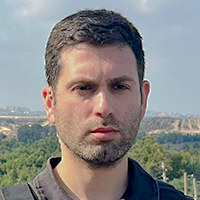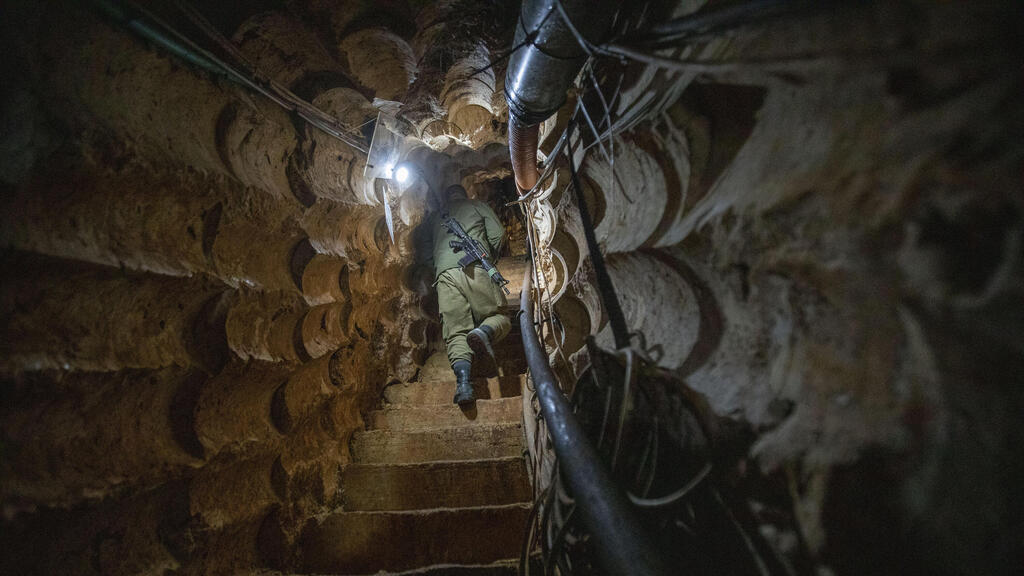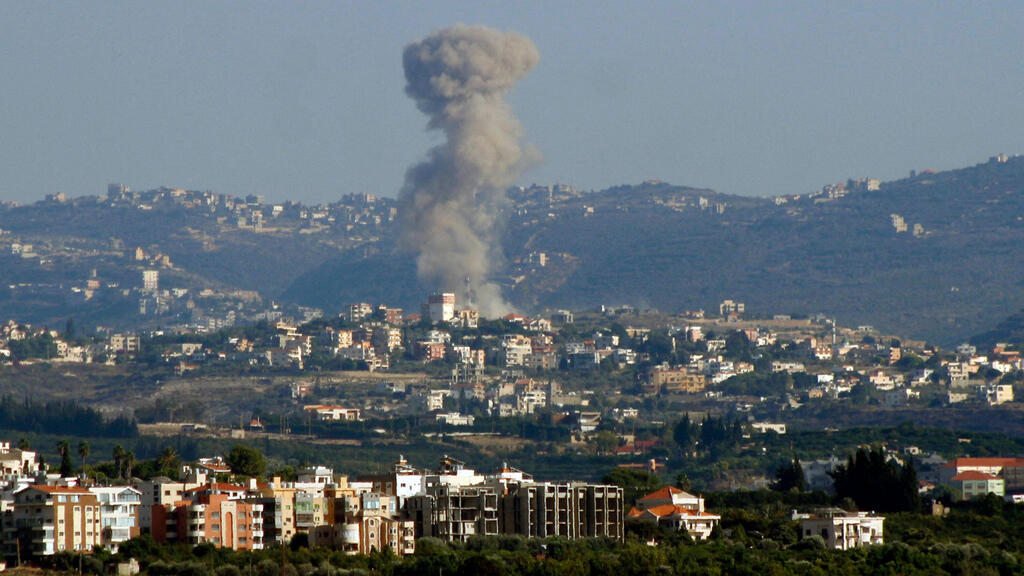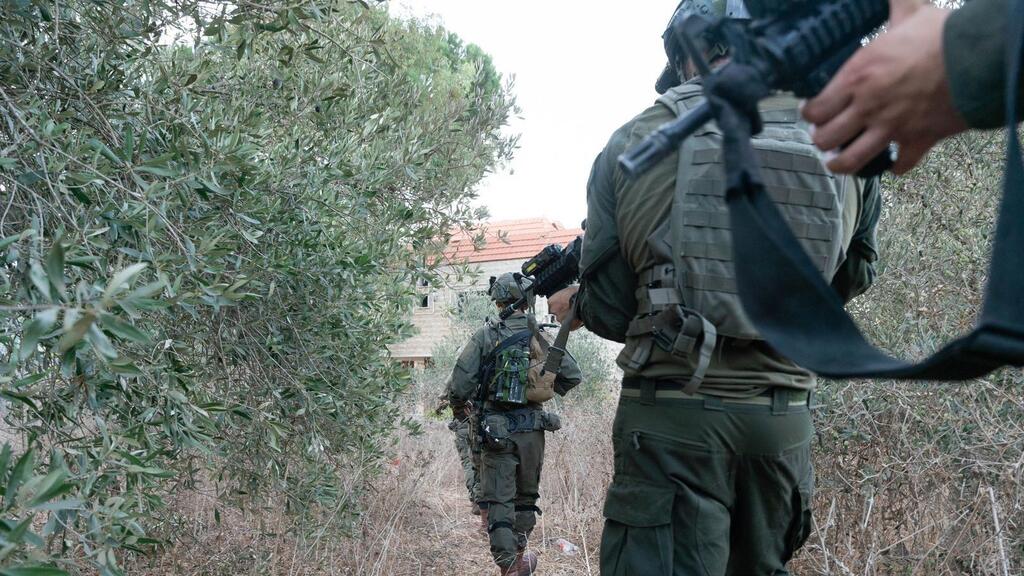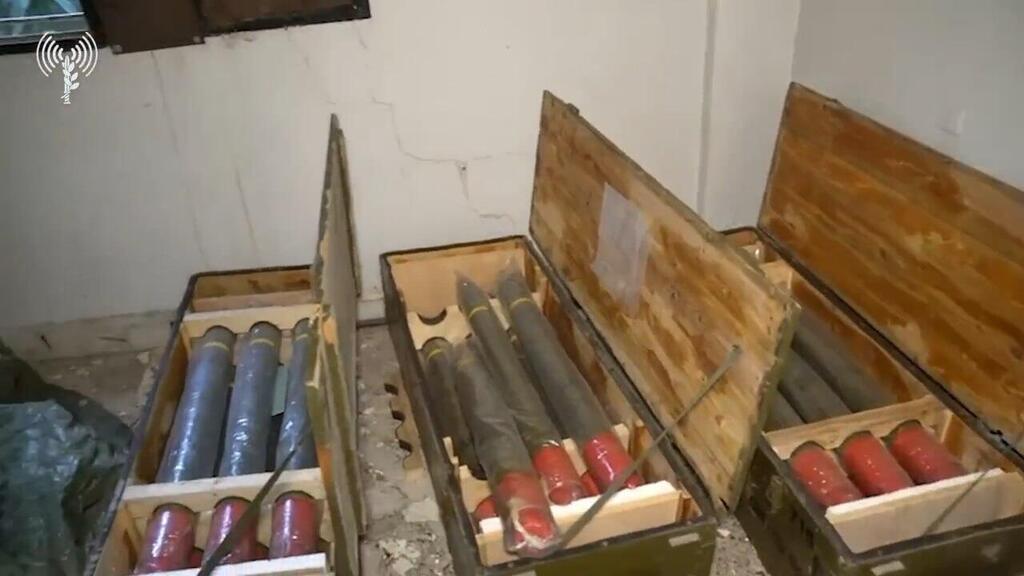The IDF located and dismantled a Hezbollah tunnel that crossed about 10 meters (33 feet) from Lebanon’s Marwahin area into Israeli territory near the community of Zar'it, the military reported on Tuesday.
The tunnel, found several months ago, was blocked at the border and had no exit into Israeli territory. Its discovery was part of the IDF's efforts to dismantle Hezbollah’s terrorist infrastructure in southern Lebanon.
The tunnel that was located in southern Lebanon
(Video: IDF Spokesperson's Unit)
IDF troops, including special units, searched the tunnel and found weapons, explosive devices, and anti-tank missiles. The tunnel was under IDF control to prevent its use for terrorist activities.
The IDF has not identified any other tunnels crossing from Lebanon into Israel. The tunnel extended about 20 meters in total and was likely dug over the past two years, according to military estimates. “It’s a purely tactical route with no immediate impact,” the military said.
Meanwhile, the IDF continues its search after detecting launch tunnels on the Lebanese side near Maroun al-Ras in the eastern sector and after uncovering Hezbollah’s underground infrastructure in villages across the region. Dozens of underground Hezbollah command posts were hit in airstrikes on Monday night, killing more than 50 tactical commanders. The IDF had been targeting them for months.
Commandos from the 98th Division, operating in southern Lebanon’s eastern sector as part of the ground offensive that began last week, reported encountering heavily fortified Hezbollah positions. These positions were concealed and built of tough stone, making them difficult to dismantle. “We’re halfway through, and there’s still work ahead in southern Lebanon,” the military said.
The 98th Division's limited operations in southern Lebanon
(IDF)
The IDF noted that its forces have successfully isolated and neutralized Hezbollah ambushes. Over the past week, the commandos killed about 200 Hezbollah fighters, many of whom had been sent to reinforce the group. Every depot destroyed contained hundreds of weapons. Troops also used deceptive tactics to expose the terrorists.
The scale of Hezbollah’s infrastructure forced the commandos to use around 100 tons of explosives in the first days of the operation to destroy Radwan Force’s weapons bunkers, which had been prepared for an invasion into Israel’s Galilee. The tunnels were also sealed with concrete. Addressing the ongoing threat of mortars and rockets, including the heavy Burkan rockets still present in Shia towns like Taybeh and Bint Jbeil, the IDF said: “We’re achieving cumulative gains. We’re not only fighting on the ground but also conducting extensive airstrikes. The overall success of our operations will bring residents back to their homes.”
The IDF stated that its forces destroyed underground routes and dozens of combat sites, uncovering and eliminating hundreds of weapons. Some of these weapons, including rockets, were seized from a Hezbollah depot by soldiers from the 890th Paratroopers Battalion. Lt. Col. Yoni, the battalion commander, said hours before the depot’s destruction, “We found seven crates full of rockets that were intended to target Israel – new and fully operational. Nothing will remain here.”
The military continues limited, targeted ground raids and airstrikes in southern Lebanon, based on precise intelligence, with the goal of neutralizing Hezbollah's capabilities and safely returning northern residents to their homes.
On Monday, the IAF conducted a series of strikes in southern Lebanon on underground command centers of Hezbollah’s units in southern Lebanon: Nasser Unit, Bader Unit, Aziz Unit, and the Radwan Forces in the area.
According to IDF assessments, In the 24 hours since Monday, 50 targets of the Aziz Unit, 30 targets of the Nasser Unit, and 5 targets of the Bader Unit were struck. Additionally, around 10 targets of the Radwan Forces and Hezbollah's intelligence headquarters, as well as approximately 30 targets of the medium-range rocket unit in southern Lebanon, were targeted.
IDF announced Tuesday that it eliminated at least 50 terrorists, including six senior commanders from Hezbollah's Southern Front and the Radwan Forces. The senior terrorists that were eliminated were identified as Ahmad Hassan Nazal, head of the attack sector in Bint Jbeil for the Radwan Forces; Hussein Talal Kamal, head of the Ghajar sector; Musa Diab Barakat, outgoing head of the Ghajar sector; Mahmoud Mus Karnib, operations chief for the Ghajar sector; Ali Ahmad Ismail, artillery commander for the Bint Jbeil sector; Abdullah Ali Dakik, artillery commander for the Ghajar sector
Get the Ynetnews app on your smartphone:



